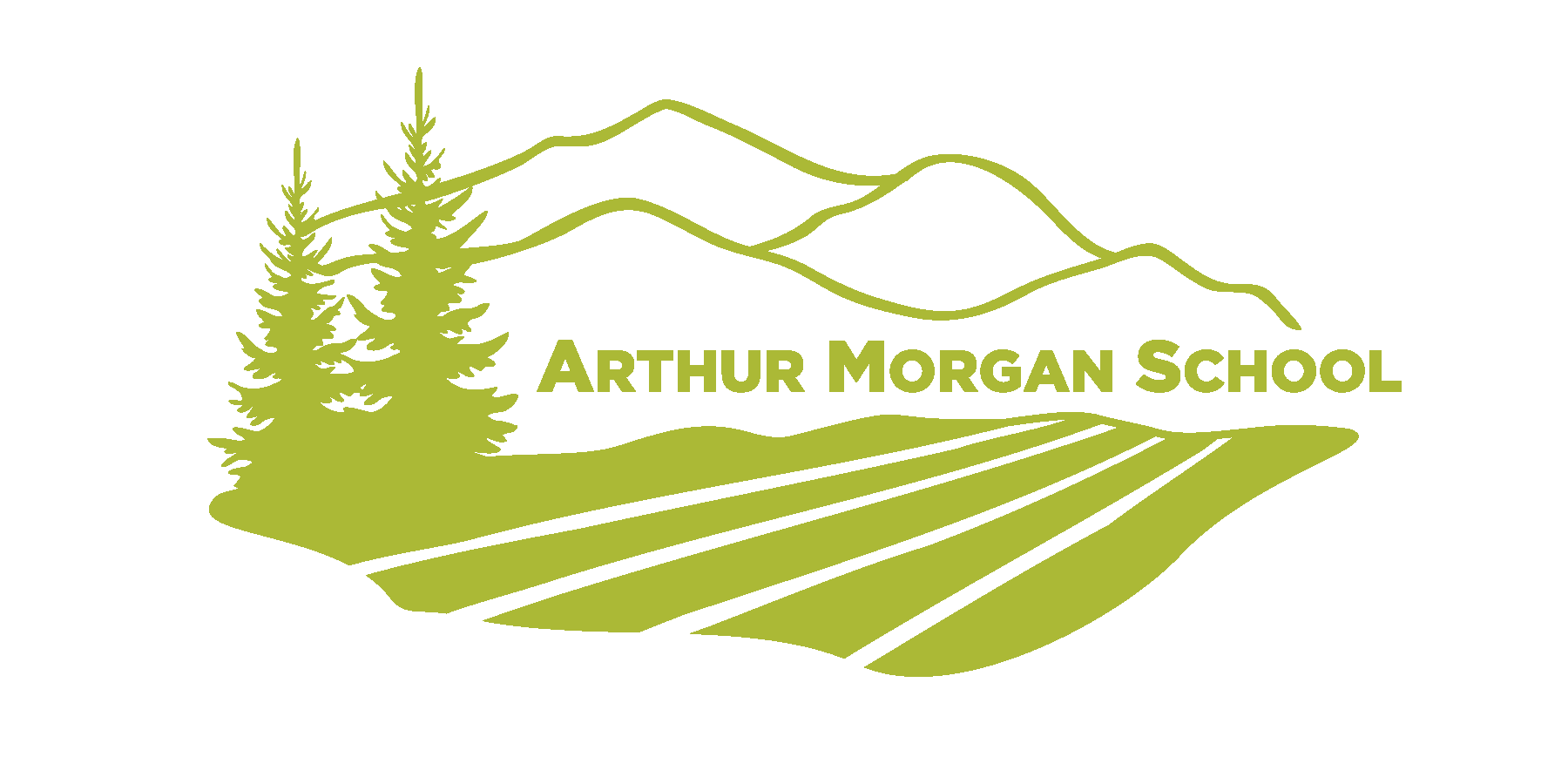Another Visit By the Danish Gymnasts
Recently a large group of gymnasts from Denmark visited Burnsville. They hosted some fun workshops at East Yancey, Cane River, Mountain Heritage and Arthur Morgan School. Seventeen families from Burnsville and Celo hosted these young performers in their homes. On Friday evening the Danish Gymnasts performed for everyone at Mountain Heritage. International visits like this are becoming a long standing tradition for Burnsville.

 This tradition started with the founder of Arthur Morgan School, Elizabeth Morgan, who started AMS with the support from her husband Ernest Morgan. The educators who influenced her in her philosophy were her father-in-law, Arthur Morgan, president of Antioch College, Pestalozzi, a Swiss educator, Maria Montessori from Italy, Grundtvig from Denmark and Gandhi. These educators emphasized the development of the whole person through a combination of study, work and social interaction. Elizabeth added her own Quaker values of living simply, equality including consensus decision making and non-violent conflict resolution. They believed that teachers and students should live together, learn together, work together and play together.
This tradition started with the founder of Arthur Morgan School, Elizabeth Morgan, who started AMS with the support from her husband Ernest Morgan. The educators who influenced her in her philosophy were her father-in-law, Arthur Morgan, president of Antioch College, Pestalozzi, a Swiss educator, Maria Montessori from Italy, Grundtvig from Denmark and Gandhi. These educators emphasized the development of the whole person through a combination of study, work and social interaction. Elizabeth added her own Quaker values of living simply, equality including consensus decision making and non-violent conflict resolution. They believed that teachers and students should live together, learn together, work together and play together.
Schools like this had been popular in Denmark for over 100 years when Arthur Morgan School opened in 1962. In Denmark, Grundtvig started folk high schools for adults to learn how to participate in a democracy. In 1852 Christian Kold started schools in the winter for farm boys, later girls attended. These schools are now call Efterskoles, meaning After School. These boarding schools are for the 9th grade, after 8th grade and before high school (or gymnasium). These schools are very similar to Arthur Morgan School. Denmark is ⅓ the size of North Carolina and there are about 250 Efterskoles in Denmark. Some specialize in sports, music, art or have a general program.
Similar to Efterskoles in Denmark, Arthur Morgan School gives equal emphasis to an academic program, hiking/outdoor program, work program that includes community service. The students do about 20 hours of work projects a week. Every student has a chore after lunch and dinner, in the kitchen or cleaning classrooms. They also work in the garden, split wood (every building is heated with wood), maintain gravel road, building construction, cook meals (all food is made from scratch and much of it comes from the garden).
Danish/American Exchange began in 1976. John Ramsay lived in Celo Community and then became the director of John C. Campbell Folk School in Brasstown, N.C. He started the exhange with Denmark and brought groups to Brasstown, Berea College (where his brother taught), and Arthur Morgan School. The first group was a folk dance group. Other groups included Leaders’ Tours, gymnastics Teams, and teaching interns. Since 1976 there have been 24 visits to AMS. Every time the groups or individuals come to Arthur Morgan School, AMS has arranged for them to participate in the local schools. AMS has had four Danish interns who spent a year at the school. In 1980/81 Mary Dart went to Denmark for a year and taught music at four folk high schools. Three Leaders Tours have gone from here to Denmark. In 1996 Joyce Johnson spent three months at the Nornesalen Research Center in Ollerup, doing research and visiting efterskoles. Berea College has had a teacher from Denmark, teaching at the college and Folk Education Center for many years. In 1991 Kim Hahn and his family spent a year at Berea. When he returned to Denmark, he became the International Coordinator for the Danish/American Exchange. Kim has brought 11 groups to Yancey and Mitchell counties. In 2002 he invited five from Yancey County and three from Berea to go to Denmark for a Leaders Tour. They were there for two weeks and visited folk high schools, technical schools, sports centers, efterskoles and public schools. They stayed with host families. This group included Christine Fletcher from AMS, Nancy Hynes who has hosted the Danes at least ten times, Tony Miller from East Yancey Middle School, and Joyce and Gil Johnson. Eleven gymnastics groups have come since 1980 and they have done workshops in the schools, public performances and stayed with host families.
